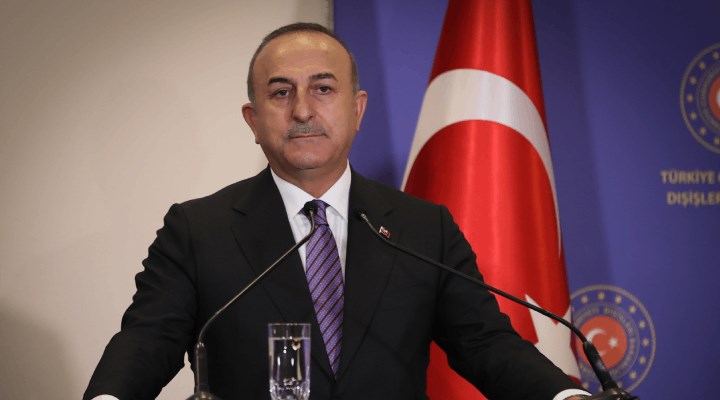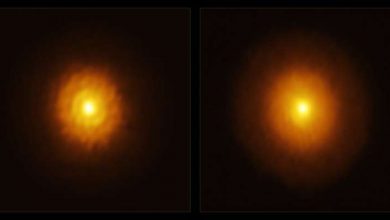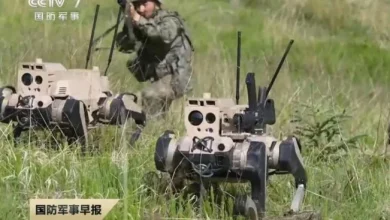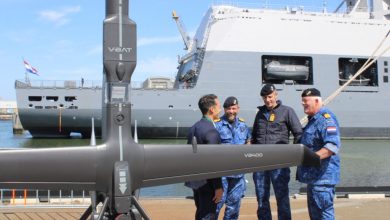Türkiye won’t allow Greece to widen territorial waters by even 1 mile

Türkiye again drew a red line against any expansion of Greek territorial waters in the Aegean Sea and urged for dialogue as the country closes the year with several diplomatic achievements
Ankara will not allow Athens to extend its territorial waters by even 1 nautical mile, Foreign Minister Mevlüt Çavuşoğlu underlined on Thursday after reports indicated that Greece was planning an extension of 12 nautical miles to the south and west of the island of Crete.
“We will not allow the expansion of (Greek) territorial waters by even 1 mile in the Aegean, let alone 12,” Çavuşoğlu told Ankara representatives of media institutions at an end-of-year press briefing in the capital.
Citing a 1995 Turkish parliamentary decision on the matter, Çavuşoğlu said: “We are warning Greece once more. Don’t get into sham heroism by trusting those who might have your back. Don’t seek adventurism. It won’t end well for you!”
The 1995 declaration warns that if Greece increases its territorial waters in the Aegean beyond 6 miles, Parliament will give “all powers,” including military powers, to the government to defend Türkiye’s interests.
Çavuşoğlu said that the declaration “remains in force today.”
Türkiye’s top diplomat said further that Ankara tried to continue dialogue with Greece and reiterated that the last exploratory talks were held in February but the positive atmosphere was obstructed by the aggressive rhetoric of Athens.
“However, we suspended the dialogue due to (Greek Premier Kyriakos) Mitsotakis’ campaign against Türkiye, provocations in the Aegean, allegations of genocide and pressure on the Turks of Western Thrace,” he added.
The Western Thrace region – located near Greece’s northeastern border with Türkiye – is home to a substantial, long-established Muslim Turkish minority numbering around 150,000.
Türkiye and Greece are at odds over several issues, including competing claims to jurisdiction in the Eastern Mediterranean, overlapping claims over their continental shelves, maritime boundaries, airspace, energy, the ethnically split island of Cyprus, the status of the islands in the Aegean Sea and migrants.
Relations deteriorated after President Recep Tayyip Erdoğan said Mitsotakis “no longer exists” for him, when Greek Prime Minister Kyriakos Mitsotakis lobbied to block sales of F-16 fighter jets to Türkiye during a visit to the United States, despite previously agreeing with Erdoğan “to not include third countries in our dispute.”
In May, Erdoğan cut ties with Mitsotakis and declared all other channels of communication between the countries closed.
The most recent incidents to have triggered tensions include two Greek coast guard boats opening fire on a cargo ship in international waters, continued pushbacks by Greek elements recorded by Turkish UAVs and previous harassment of Turkish fighter jets on a NATO mission by Greece’s Russian-made S-300s.
On the other side, Çavuşoğlu also said that the U.S. has lost its balance in Greece and the Cyprus issue, adding that supplying Greece with weapons is a clear indication.
Besides the U.S., he also criticized the European Union for failing to adopt a neutral stance in the face of NATO allies Greece and Türkiye.
Emphasizing that Türkiye is a “key country” for Europe on “fundamental issues from energy to food, from security to migration, from production to supply chains,” Çavuşoğlu said, “The strategic blindness of the EU prevents them from seeing the truth.”
“The EU surrenders to the impertinence of the Greek-Greek Cypriot duo,” he said, adding that such “blindness” of the EU could only be overcome by Türkiye’s full membership to the bloc.
Price of supporting terrorists
On Türkiye’s counterterrorism efforts, Çavuşoğlu said, “Unfortunately, our allies continue to be a hindrance, not a support.”
“The attacks in Paris once again showed the price of joining arms with terrorists. We’ve always said: ‘Playing with fire will burn one’s self one day,'” he added.
Çavuşoğlu said that Türkiye told France it’s “unacceptable” for some politicians to support and take part in the Paris protests of PKK members and supporters.
Last Friday, after a gunman opened fire in Enghien Street, killing at least three people and wounding three others, supporters of the PKK terrorist group soon amassed in the area.
In the ensuing protests on Friday and Saturday, they perpetrated acts of violence and clashed with the police, with 31 injured, along with one protester. Police placed 11 people in custody.
Though officially recognized as a terrorist group, last week’s violence highlighted how the PKK openly maintains a dangerous foothold in Europe.
‘Complicated picture’
Speaking on the Russian invasion of Ukraine, Çavuşoğlu said that the picture is getting complicated as the war continues to drag on after 10 months.
“The dimension of the war changed. The situation was different in March,” he said, reiterating that peace talks have to be launched as soon as possible as developments on the ground are clouding the possibility of a solution.
“Would Russia want to discuss the state of Donbass or Crimea after the referendum? Ukraine meanwhile had a counterproposal – a 10-point peace plan. But there will be no peace, cease-fire unless both sides accept it,” he added.
“The longer time goes on, the harder it is. There is uncertainty about when the breaking point will be.”
Türkiye is one of the most active countries working to ensure a permanent cease-fire between Ukraine and Russia. Its delicately balanced act of assuming a mediator role by keeping communication channels with both warring sides open provides a glimmer of hope in diplomatic efforts to find a solution and achieve peace in the Ukraine crisis. With its unique position of having friendly relations with both Russia and Ukraine, Türkiye has won widespread appreciation for its push to end the war.
Active diplomacy
Displaying figures about Türkiye’s “active diplomacy” in 2022, Çavuşoğlu said he has had at least 267 phone and videoconference calls.
Noting 83 visits abroad – with 24 of them accompanying Erdoğan – Çavuşoğlu said that at least 114 foreign ministers have visited Türkiye.
Türkiye’s normalization and mediatory efforts have been the highlight of 2022, he added, saying those with the United Arab Emirates and Saudi Arabia have made significant progress.
“We have mutually appointed ambassadors with Israel. The normalization process with Egypt is progressing, albeit at a slower pace,” he added.





